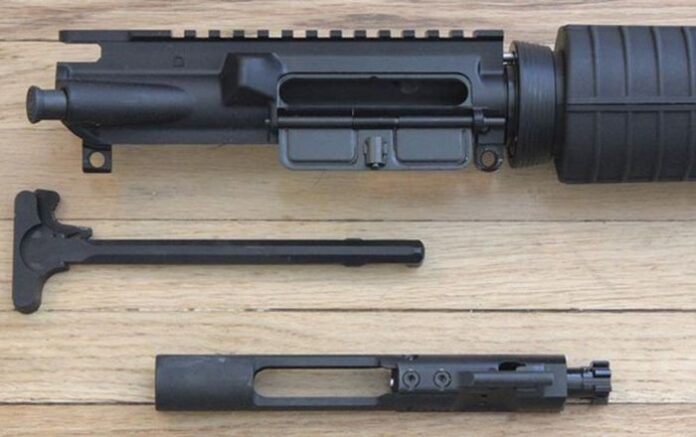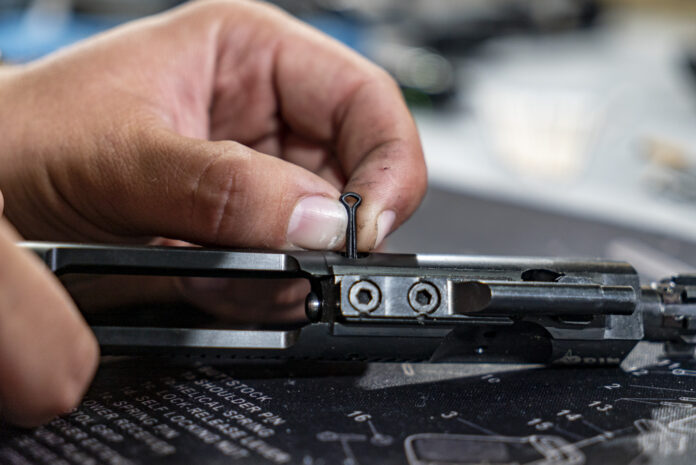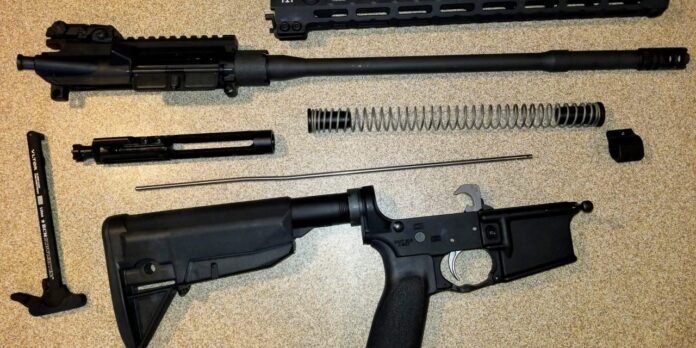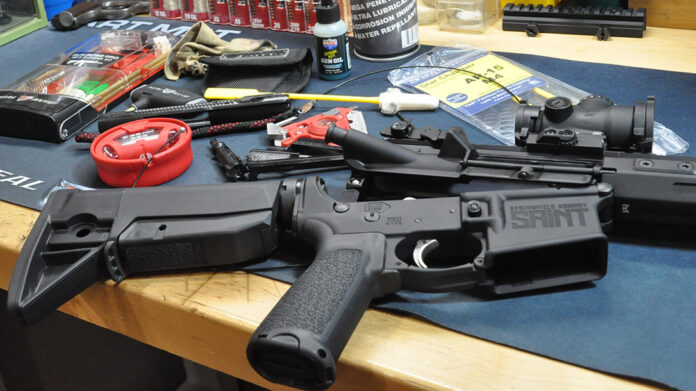The AR-15 is a sturdy and versatile rifle, but it needs regular maintenance if you wish for it to function at its best. If you’re a veteran gun enthusiast or a newbie starting, mastering the nuts and bolts of AR-15 maintenance can help you get the most out of your rifle. Even though fresh coatings and components can increase the duration between significant cleansings, they can’t render the gun free of maintenance. Metal fragments that rely on acceptable limits work best when free of muck, debris, and rust. You can do a few easy inspections while cleaning to discover potential issues before trigger time.
You can’t just pick up an AR 15 and call it a day. In addition to the firearm itself, you’ll need ammo, magazines, a carrier, optics, a cleaning kit, and other accessories. Knowing how to care for your rifle and AR 15 parts properly is just one of the many duties that come with being the owner of such a powerful firearm.
You need to know a few things when dealing with this firearm.
Check The Bore

It is recommended that you give the bore a thorough cleansing after each use. A one-piece pole might be helpful to keep the lips from breaking out too quickly at the joints. A bronze bore brush should be used to wipe the bore of corrosion because it is suitably abrasive. The bore brush must be replaced when it becomes dislodged from the barrel. If any carbon or copper persists, redo the step.
Clear The Chambers Of Dust
Ordinary brass-cased bullets corrode internal surfaces and jam chambers. After a few minutes, with the solvent in place, you can switch out the patches with new ones. Cleaning the locking lug slots in the barrel extension can be done with a few cotton wipes.
Remove Any External Debris From The Bolt Carrier Group (Bcg)

Reduce the BCG to its bare essentials for a thorough washing. The majority of maintenance issues manifest in this area. Start by wiping the BCG with a damp cloth, and then use cotton swabs to get into harder-to-reach crevices.
Periodically inspect the whole BCG for wear. Inspect your bolt for broken, absent, or fractured screws or lugs. Ensure the bolt body is not burst at the cam pinhole. The point of the firing pin should be round and pit-free. There should be no cracks in the retention pin and no more than a ninety-degree angle of deviation in the firing pin’s legs or tines. Make sure that the carrier gas key is in its locked position.
Take Care Of The Gas Tube
After a thousand rounds,
- Clean the gas system in your gun using a pipe cleaner and cotton swabs.
- Remove carbon buildup from gas-block screw(s) and operating-rod systems using gas regulators.
- Lubricate the rod’s sliding surface within the top receiver bushing as the manufacturer directs to avoid binding.
- Clean the bottom receivers with pressurized air or Q-Tips.
The bottom receiver may require a more thorough cleaning if a silencer or subsonic centerfire gun ammunition is used. Ejection of the trigger and hammer systems is needed; before reinstalling them, care must be taken to ensure they are appropriately oriented. Lubricating the detent passageways at the front and back of the weapon will make inserting and removing the pins a breeze.
Do The Modifications Smartly

However, keep track of other AR-15 upgrades, such as keeping it clean, storing it properly, and using only high-quality customization and additional components.
Some helpful upgrades for your AR-15 to think about are as follows:
1. Gas Ring Substitution
Removing the bolt from the bolt carrier group and placing it on a flat surface helps you determine if you need new gas rings. If the bolt breaks under the strain of the carrier group, you need to replace the gas rings.
2. Top-Notch Magazines
Less expensive, inferior magazines may save money but cause long-term problems. Poor-quality magazines will eventually stretch, bend, or break, making feeding ammunition difficult and reducing effectiveness.
3. Correct Gas Port Dimensions
Significant malfunctions in AR-15 rifles can be prevented by selecting the right gas port size, as over-gassing can lead to catastrophic consequences, requiring careful disassembly and modification.
4. Coating For Protection
Cerakote is a high-performance coating that is affordable and low-maintenance. On the other hand, the nickel-boron layer has great lubricating and cleaning abilities. In addition, it offers excellent corrosion resistance but at a much higher price.
Preserve Your Rifle Correctly

After cleaning the higher receiver of your AR-15 rifle, make sure to put it in a dry, clean place out of the elements.
The best and most convenient ways to store your AR-15 are detailed here.
- Gun locks are cheap, easy to implement, and prevent accidental shootings but not theft.
- For temporary transit and storage, firearm cases offer modest safety and security.
- Gun racks are similar to gun safes in that they may store a variety of guns and can be locked for security.
- Firearm Cabinets are portable storage solutions for lightweight and fireproof firearms.
- Gun cases are the most secure, with adjustable interiors and many locking systems.
- Store ammo in a cool, dark, and dry closet to minimize severe temperature variations. Stay away from direct sunlight.
How Frequently Should You Go Through The Process Of Cleaning Your Rifle?
You should completely clean and maintain your AR-15 after firing 500 bullets or half-yearly. If you do this, you can rest assured that you will achieve maximum efficiency and help prevent any difficulties from occurring. Rifle maintenance should be increased after exposure to severe environments like salt water. The barrel, key components, and moving parts should all be wiped down after use, and lubrication should be applied regularly for regular shooters.
Conclusion
If you plan on firing your AR-15 again soon after getting it dirty, you should clean it as quickly as possible. A weekly cleaning prevents fouling from worsening. While heavy oil may help if you don’t have time to clean in between shoots, it ultimately just makes more of a mess. The key is consistent care and upkeep.








